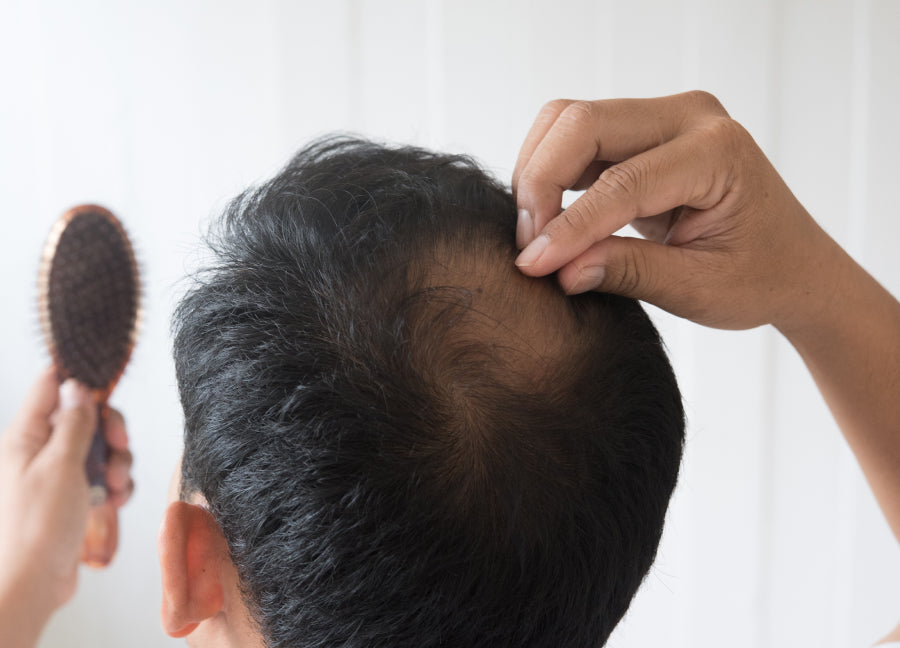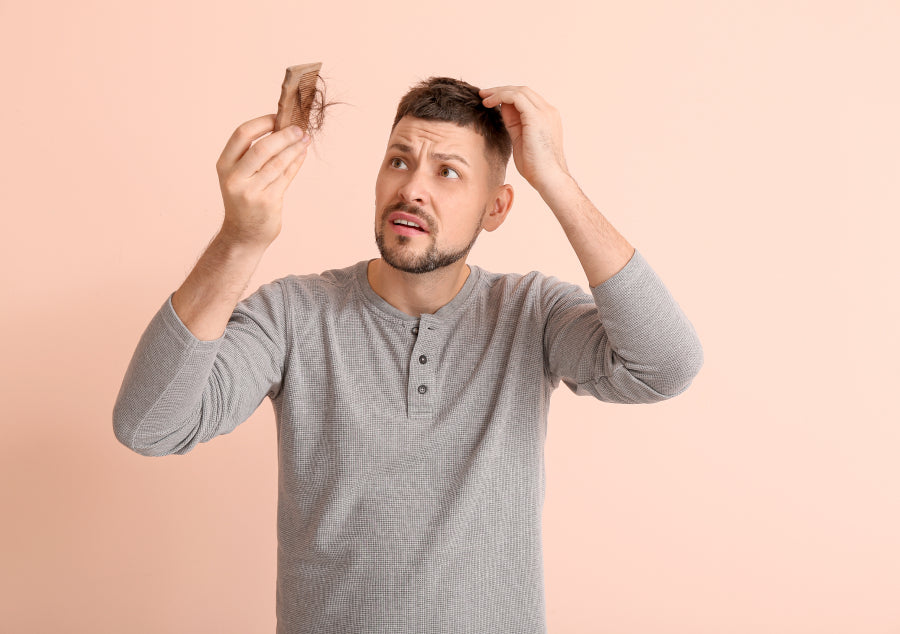DHT might seem like just another buzzword in the vast world of hair care, but it's much more than that.
Understanding DHT blockers can be your game-changer in the battle against hair thinning. So, buckle up and let's journey together into the world of DHT blockers and uncover how they can potentially turn the tables on hair loss.
What is DHT?

Dihydrotestosterone, commonly abbreviated as DHT, is a powerful derivative of testosterone, the male hormone. While it plays crucial roles in male development, an excess of DHT in the scalp can spell trouble for hair follicles, making them shrink and produce thinner hair over time.
The Connection Between DHT and Hair Loss

Hair follicles are sensitive things. When DHT levels rise in the scalp, they can bind to receptors in hair follicles, especially those genetically predisposed to hair loss. This binding process can shorten the growth phase of hair, leading to thinning and eventual hair loss. This condition is popularly termed as Androgenetic Alopecia or male pattern baldness.
Enter DHT Blockers
DHT blockers come to the rescue by inhibiting the conversion of testosterone to DHT. They can be found in various forms - from shampoos and topical treatments to oral medications.
Popular DHT Blockers and Their Sources
- Fnasteride: A well-known oral medication that decreases DHT levels in the bloodstream.
- Saw Palmetto: A natural extract, often found in hair loss shampoos and supplements.
- Pumpkin Seed Oil: Another natural remedy that has shown potential in reducing DHT levels.
- Nettle Root: Used in traditional medicine, nettle root can inhibit DHT production when used in hair products or supplements.
Potential Side Effects of DHT Blockers

While DHT blockers can be immensely beneficial, they're not without potential side effects:
- Changes in libido.
- Fatigue or weakness.
- Swelling in the hands or feet.
- Scalp irritation (for topical products).
Always consult with a healthcare professional when considering the use of DHT blockers, especially oral medications.
FAQs
Q: Can women use DHT blockers?
A: Yes, women can benefit from DHT blockers, especially if their hair loss is linked to hormonal changes. However, specific treatments like Fnasteride are primarily prescribed for men.
Q: Are natural DHT blockers as effective as medications?
A: While natural blockers like Saw Palmetto have shown promise, prescription medications like Fnasteride have more consistent clinical evidence backing their efficacy.
Q: Can I combine DHT blockers with other hair loss treatments?
A: Often, DHT blockers can be combined with treatments like Mnoxidil for enhanced results. Consult with a dermatologist or hair care expert before mixing treatments.




Leave a comment
This site is protected by hCaptcha and the hCaptcha Privacy Policy and Terms of Service apply.